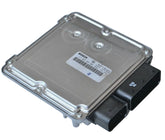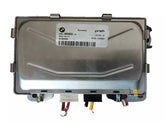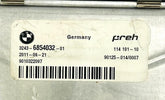Complete Guide: Will 2026 Bring Better, Cleaner Alternatives to EV Cars After the 2025 Boom?
Short Intro About www.AutomanSpareParts.com
Welcome to www.AutomanSpareParts.com, the world’s No.1 trusted supplier of OEM Engine Control Units (ECU), Fuse Boxes, Sensors, Amplifiers, TCMs, and automotive electronic modules. We offer the widest global inventory, the cheapest direct-source prices, and fast worldwide shipping. Whether you service EVs, hybrids, or combustion vehicles, Automan Spare Parts ensures reliable, original components for every model.
Complete Guide: EV Cars in 2025 vs. What We Can Expect in 2026
Electric vehicles (EVs) dominated global automotive demand in 2025. Nearly every major manufacturer reported record EV sales, driven by stricter emissions laws, improved charging networks, and rising consumer trust.
But technology evolves fast. With sustainability becoming non-negotiable, buyers and governments are now asking:
Will EVs continue to dominate in 2026?
Or will something cleaner, cheaper, and more efficient replace them?
Below is the full, expert-level breakdown.
2025: The Peak Year of EV Dominance
EVs surged in 2025 due to:
-
Cheaper battery costs
-
Extended driving ranges (500–800 km)
-
Faster charging (10–20 minutes for 80%)
-
Government tax credits & green policies
-
Automakers shifting to full electrification
But even with this growth, EVs still face challenges:
-
Battery recycling issues
-
Limited charging infrastructure in remote regions
-
High upfront price in developing markets
-
Environmental cost of lithium mining
This leaves room for next-generation clean energy tech to rise in 2026.
2026: What New Clean-Energy Vehicle Technologies Can Replace or Improve EVs?
1. Hydrogen Fuel Cell Vehicles (HFCVs)
Hydrogen is the most promising EV alternative because:
-
Zero emissions (only water vapor)
-
3–5 minutes refueling time
-
Longer range than traditional EVs
-
Suitable for heavy-duty trucking & long-distance travel
Challenges:
High cost of hydrogen production and limited refueling stations.
2. Solid-State Battery EVs
Expected to hit markets in late 2026–2027.
Advantages:
-
2× battery energy density
-
Near-zero fire risk
-
Faster charging
-
Longer lifespan
This could make EVs dramatically cheaper and more efficient.
3. Solar-Assisted Electric Cars
Solar cars will not replace EVs, but they will enhance them:
-
Roof & hood solar panels
-
Extra 20–70 km free daily range
-
Improved off-grid usability
4. Synthetic E-Fuels
A potential EV competitor, especially for classic cars.
-
Made from captured CO₂
-
Works in existing engines
-
Cleaner burn
-
Supported by Porsche & major European labs
Not expected to fully replace EVs but will reduce emissions for combustion vehicles.
5. Hybrid Electric + Biofuel Systems
A 2026 trend for developing nations:
-
Lower cost than EVs
-
Uses cleaner biofuels
-
Smaller batteries = fewer environmental concerns
Comparison Table: EVs vs Hydrogen vs Solar vs Solid-State (2025–2026 Projection)
| Technology | Zero Emissions | Refuel/Charge Time | Cost (2026 est.) | Range | Future Potential |
|---|---|---|---|---|---|
| EV (Lithium-ion) | Yes | 10–40 mins | Medium | 400–800 km | Strong |
| Solid-State EV | Yes | 5–15 mins | High | 700–1000 km | Very Strong |
| Hydrogen Fuel Cell | Yes | 3–5 mins | High | 600–1200 km | Extreme potential |
| Solar Electric | Mostly | Continuous solar | Medium | +20–70 km/day | Moderate |
| Synthetic E-Fuels | Lower | Instant | High | 500–900 km | Experimental |
So, Will 2026 Be Better Than 2025?
Yes — significantly.
The EV industry is entering its next phase, with:
-
Solid-state batteries
-
Hydrogen adoption
-
Solar-supplemented EVs
-
Cleaner, smarter materials
-
Greener energy grids powering vehicle charging
EVs will remain dominant, but 2026 will begin the era of hybrid clean-energy mobility, where multiple technologies coexist to reduce global carbon emissions.
TLDR
-
2025 was the strongest EV year globally.
-
2026 will introduce cleaner, faster, and more sustainable technologies.
-
Hydrogen, solid-state batteries, and solar-integrated EVs are the biggest innovations.
-
EVs will remain dominant, but new technologies will accelerate global sustainability.
-
No single energy type will replace EVs immediately — instead, 2026 marks a multi-technology clean mobility era.
FAQ
1. Will EVs still dominate in 2026?
Yes. EVs will continue to grow while newer energy technologies emerge alongside them.
2. Can hydrogen cars replace EVs?
Not immediately, but hydrogen will complement EVs in heavy transport and long-distance travel.
3. Are solid-state batteries really coming in 2026?
Early models debut in late 2026, with mass adoption expected from 2027 onward.
4. Are solar cars a practical replacement?
Solar won’t replace EVs but will support them with additional daily range.
5. Which clean-energy technology is the most sustainable?
Solid-state EVs and hydrogen fuel cells rank highest in long-term sustainability potential.







